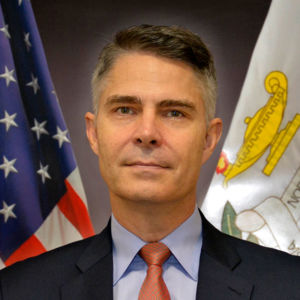
Dr. James Minnich is an academic, author, and retired U.S. Army Colonel with in-depth experience in Northeast Asia since 1982, including 15 years of duty in Korea. He has been a professor at the Daniel K. Inouye Asia-Pacific Center for Security Studies since 2016, where he previously served as Associate Dean, before retiring in 2019 after 37 years of active duty.
Dr. Minnich hosts and produces Dialogue, the Center’s online platform for critical discussions on Indo-Pacific security challenges. In this role, he facilitates high-level conversations with experts, policymakers, and practitioners to explore pressing regional issues and emerging security trends.
He earned a Doctor of Education from the University of Southern California in Los Angeles, California; a Master’s Degree in Regional Studies-East Asia from Harvard University in Cambridge, Massachusetts; a Master’s Degree from the U.S. Army Command and General Staff College in Fort Leavenworth, Kansas; graduate diplomas in Korean language studies from Sogang University in Seoul, Korea, and military studies from the Korean Army College in Taejon, Korea. He is a senior service college distinguished honor graduate from the Korean National Defense University in Seoul, Korea. He is fluent in the Korean language.
He served as the Secretary of the United Nations Command Military Armistice Commission, Senior Country Program Director for Afghanistan, Acting Director and Deputy Director of the Security Assistance Office in Afghanistan, Deputy Chief and Director of JUSMAG-Korea, and Chief Policy Branch, USFK. He led field artillery formations at the tactical level in several command and staff positions within Airborne, Air Assault, Light, and Mechanized units.
He is the editor of The Indo-Pacific Mosaic (2025) and the author of The North Korean People’s Army (2005) and The Denuclearization of North Korea (2002). A recognized thought leader, he regularly speaks at academic, diplomatic, and defense forums, contributing to informed decision-making on pressing security issues.





